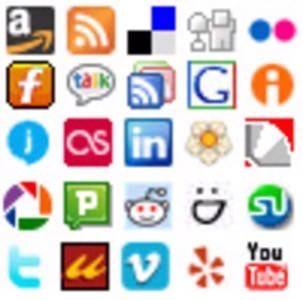(Hint: It’s Not FriendFeed)
Robert Scoble just admitted to spending 7 hours per day in FriendFeed. It’s easy to see why. The more you explore that service, the more you find, and the deeper you fall down into the rabbit hole that is the social web. It’s probably one of the most interesting and powerful social sties that we’ve seen develop over the past year. Yet it, like many other of today’s social web services, seems to be a somewhat incomplete vision of what a real social web could be.

Let me explain.
I’ve just spent the past hour and a half finding new people to subscribe to on FriendFeed. As I clicked into their life streams, I also found a ton of articles which I spent time a long time reading. However, I hesitate to share my FriendFeed stats as openly as, say, Louis Gray does. Why? Because they wouldn’t be accurate.
The problem with FriendFeed is that I tend to be a more passive consumer of the information that flows by on the service. Who I “find interesting,” according to FriendFeed, has less to do with who I actually find interesting and more to do with who I remembered to “like” through a click of a button. In fact, the items that get “liked” are more often the items that didn’t require a long investment of my time in order to absorb. In my stream of “likes,” you’re probably going to find a lot of funny photos, cool web apps, tweeted quips, and so on. However, the articles that I spent time reading, like this analysis of the Twitter network or this expose of a government employee caught using a cut-rate diploma or even this review of Burger King’s social media efforts, are nowhere to be found in my “likes and discussions” tab. The reason? I didn’t know I liked them until I clicked through and read the articles.

Yes, I know what you’re going to say: I could have hit the “back” button when I finished my reading and then clicked “like” to show that I enjoyed the articles. But the problem, you see, is that would require me to be a much more organized web citizen than I currently am. Instead, I had haphazardly opened these articles in tabs at some point during the day because I thought I might like to read them later. (Yes, sadly, try as I might, my “Read Later” system always reverts back to being open tabs in Firefox.) After opening these tabs, I had then proceeded to interact with FriendFeed as usual. Thanks to the constant flow of content and updates from FriendFeed’s fire hose, the original shares and sources of my discovery were lost to me.
Yet, if anything, I liked these items more than the ones I marked with a “like.”
It’s Not Just FriendFeed…
It’s not just FriendFeed that has this issue – every action we take on the social web requires some sort of user input – we have to “like,” “share,” “bookmark,” “update,” every little thing we do…and sometimes, it just doesn’t feel that natural. On the flip side, there are tools like the semantically-powered Glue, for instance, that quietly shares our behavior with friends. When we visit Wikipedia, search for a new book, CD, or movie, research local restaurants, discover new wines, and more, Glue makes a note of that action which our friends can later review.

Unfortunately, there’s no “Glue” for the social web. There’s also no happy medium between what it does – quietly observe, record, and share all your actions – and the control you have with a single, manual “like” on FriendFeed. The ideal social tool would be something in the middle. Not entirely passive, but also not requiring you to click, click, click all the time to register your opinions. What this may be, I can’t even imagine, but it would have to be something that ties the social web all together. If I read an article in Google Reader, it could get liked on FriendFeed automatically. With one click, I could then Digg it, bookmark it, Twitter it, etc. Oh, and the starting point shouldn’t have to be Google Reader. A great tool would provide that same workflow, no matter where you first saw the content.
Clearly, the perfect social tool has not been invented yet, and – who knows? – we could be years away from even seeing anything like it (although I hope not). But it needs to exist because I need to use it. Not next year, not tomorrow, but now. Won’t someone please build this, the perfect social tool?
















